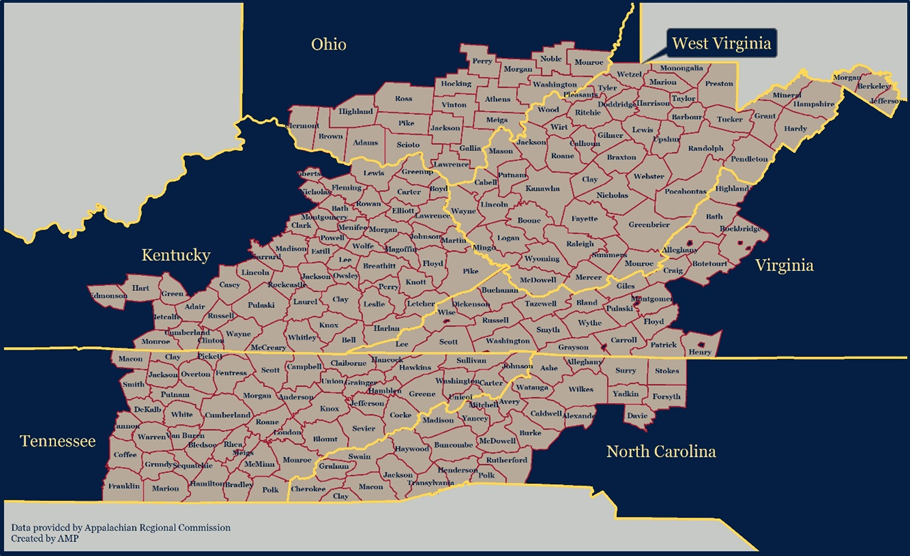
Developing a Research Agenda to Prevent and Control
CVD in Central Appalachia
Patients, Caregivers, Providers, Public Health Professionals, Community Stakeholders
CVDAppalachia Conference II: August 30, 2019
Holiday Inn, Johnson City, Tennessee
8:00 am—5:00 pm
Notable Guest Speakers • Complimentary Meals • Poster Presentations • Exhibitors/Vendors
For Special Rates on Lodging visit: Holiday Inn or call (423) 282-4611.
To register for CMEs, please visit > There is no registration fee for this event. However, pre-registration is required for anyone seeking CME credit or attendance credit.
Project Purpose
This CVD community engagement award project, funded by Patient-Centered Outcomes Research Institute, is focused on quality improvement strategies and a better understanding of effective policies/programs for Central Appalachia.
This Conference is Free and Catered - (Breakfast, Lunch, and Snacks)
The 1st 50 patients/non-licensed caregivers will receive $20.
CME Credits Available for Eligible Participants
Topics
- Plenary Session Panel of Experts
- Risk Factors/Social Determinants
Traditional risk factors for CVD are well established, including medical conditions (diabetes, obesity, hypertension, and hypercholesterolemia), lifestyle/behavior (smoking, unhealthy diet, and physical inactivity), and structural/social determinants (poverty, unemployment, education, and income). Yet, over 85 million Americans have at least one risk factor. Indeed, we found in our research involving a Central Appalachian population that over 90% of the participants had more than one CVD risk factor. While these CVD risk factors may be ubiquitous, some may be highly prevalent in certain population subgroups and geographic areas. As such, the conference will explore the factors that are of priority to communities in Central Appalachia and needing urgent attention, which is consistent with the comparative effectiveness research framework.
CVD Policies and Programs
The Institute of Medicine (IOM) has opined that policies/programs can be used to achieve positive health outcomes and improve population health status. Evidence indicates that policy/programmatic changes have contributed to the overall decline in CVD morbidity and mortality in the U.S. However, these policies and programs have desperate impacts on population subgroups and geographic areas. Indeed, these nationwide or statewide policies/programs have not had the expected outcomes on CVD and its risk factors in Central Appalachia, which is why the prevalence continues to be high. Therefore, this session will discuss evidence-based policies developed and implemented within communities across Central Appalachia.
Keep Your Move in the Tube ™
Keep Your Move in the Tube,™ based on the ergonomics that shorten the length of the outstretched arm (lever arm reduction), enables patients to perform previously contraindicated movements. By keeping their upper arms close to their body, as if they were inside an imaginary truncal tube, patients can modify load-bearing movements and thus avoid excessive stress to the sternum. Keep Your Move in the Tube,™ enables patients to use their arms and thus perform bed mobility and transfers more efficiently, which may increase the likelihood that they will be discharged to their home.
CVD and Culture
It has been established that Appalachia has a unique culture, which underpins the health outcomes and health behaviors of the people in the region. As such, this section will discuss the socio-culture dynamics involved in CVD prevention and treatment.
Special Session: “Poster Presentations”
Call for Abstracts
The call for abstracts for CVD Appalachia Conference II, August 30, 2019, is now open! We welcome abstracts on any CVD/CVD risk factor related topic. Abstracts will be accepted for consideration by the Scientific Committee. Notification of acceptance will be made no later than August 1, 2019.
Each abstract submission should include authors’ names, affiliation, and the corresponding author’s contact information. A 250-word structured abstract (introduction, method, results, and discussion) is expected.
Abstracts should be emailed directly to Project Coordinator, Amy Poole at cvdappalachia@gmail.com for consideration.
At least one of the coauthors needs to be registered for CVDAppalachia Conference II. When submitting an abstract, please indicate which coauthor(s) will register and present. CVD Appalachia is open to all. There is no registration fee for this event. However, Pre-registration is required for anyone seeking CME credit or attendance credit.
For more information about conference registration, please visit www.etsu.edu/cvdappalachia.
The Best Abstract Award: All authors, whether submitting through individual abstracts, have the option to indicate whether this abstract will compete for “Best Abstract Award.” The winner will have their abstract and poster published on the CVDAppalachia website, plus receive a Certificate of Merit.

Central Appalachia
Be part of the Conversation
Join ♥ Participate ♥ Collaborate
For more information, contact: Amy M. Poole, MS, Project Coordinator,
cvdappalachia@gmail.com or call (423) 845-4021. Someone will respond within 24 hours.
 Stout Drive Road Closure
Stout Drive Road Closure 
